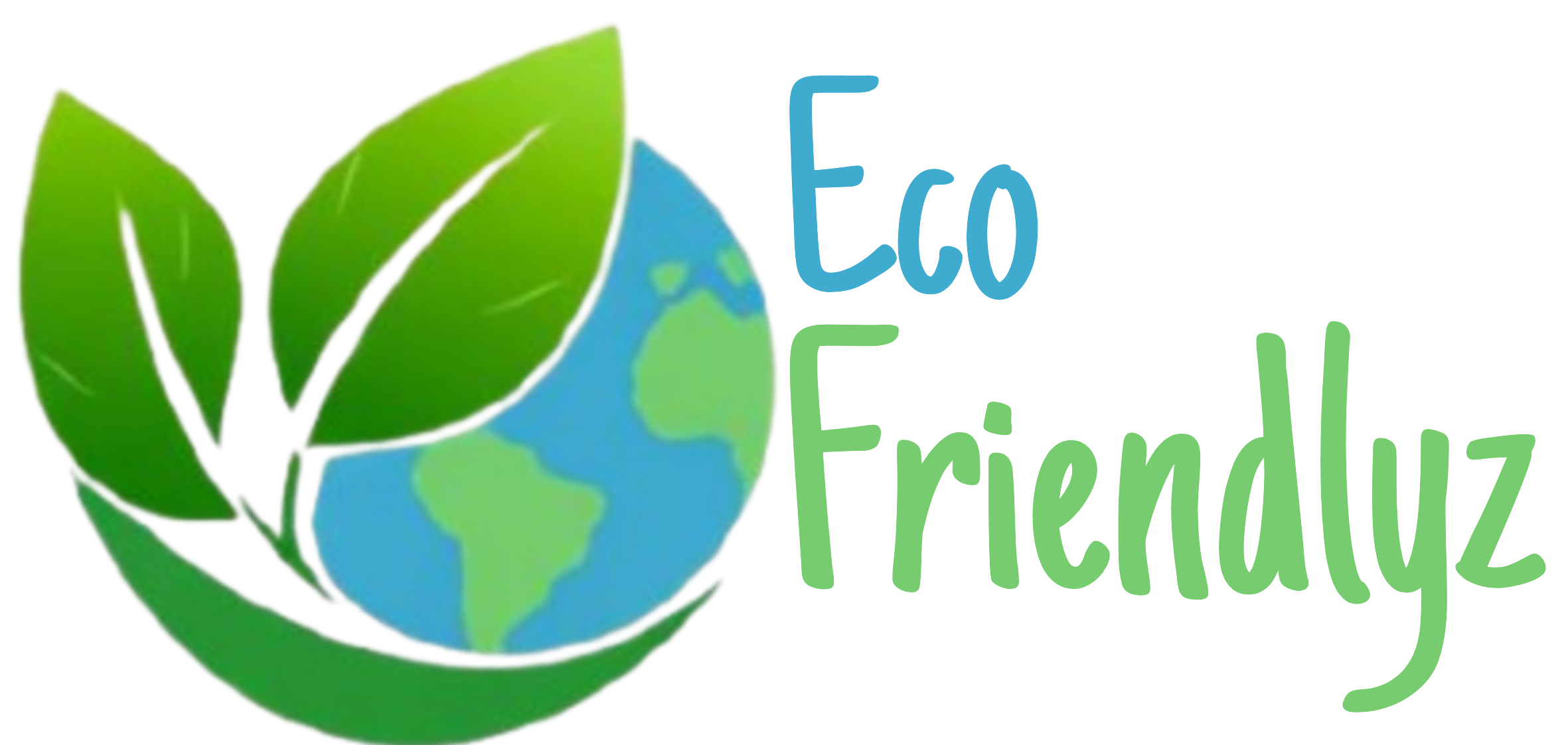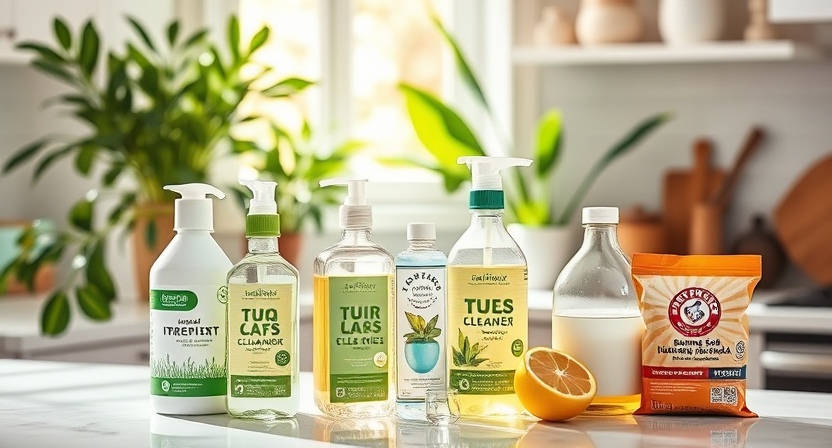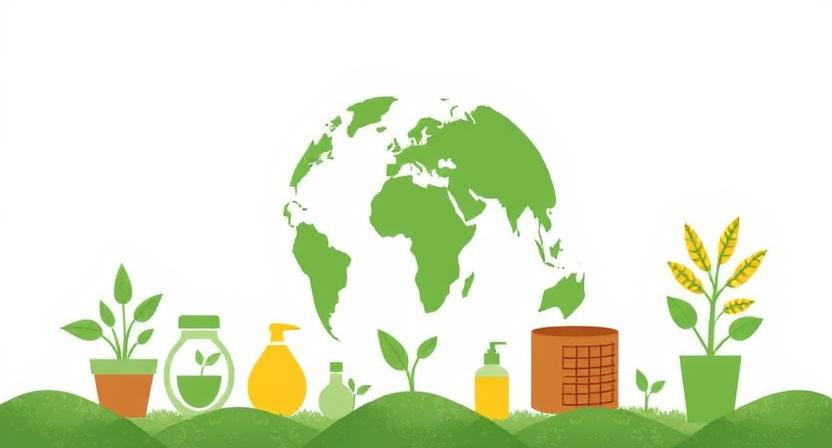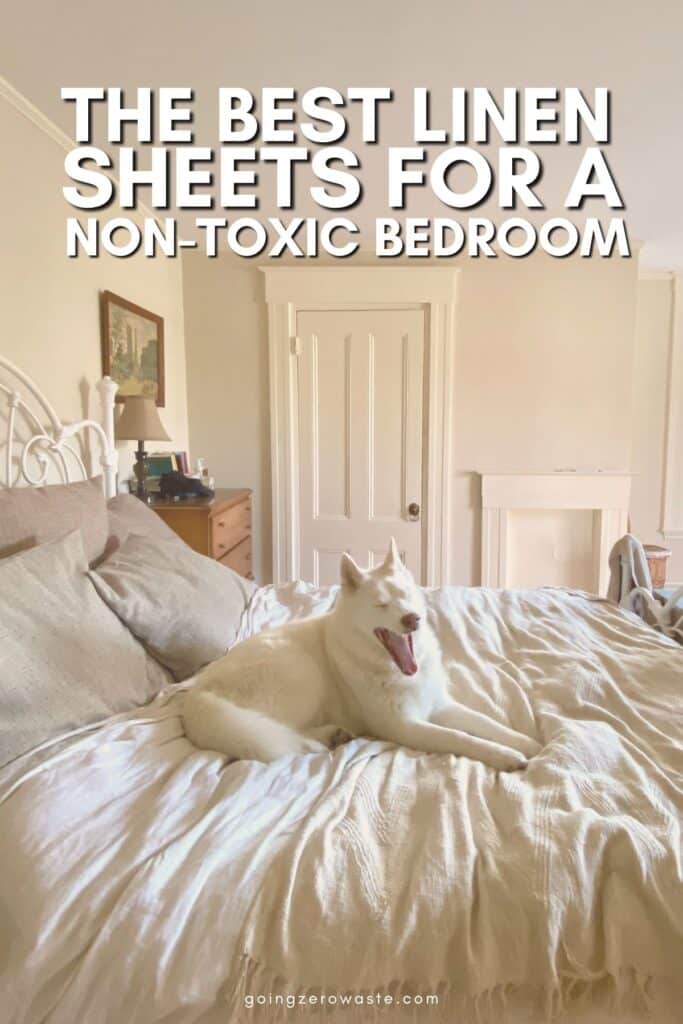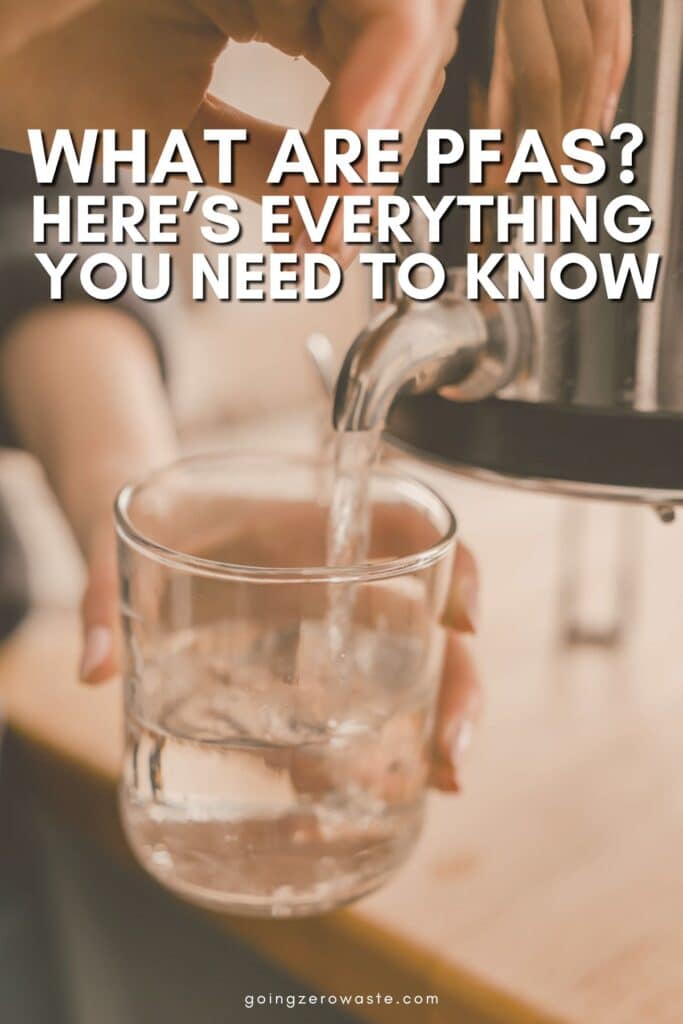Benefits of Using Eco-Friendly Cleaning Products

Switching to eco-friendly cleaning products offers numerous advantages for both your health and the environment. Unlike conventional cleaning products that often contain harsh chemicals, eco-friendly options are typically made with natural and biodegradable ingredients that are safer for you and your family. By choosing eco-friendly cleaners, you can reduce your exposure to harmful toxins and pollutants commonly found in traditional cleaning products.
In addition to being better for your health, eco-friendly cleaning products also help protect the environment. Many conventional cleaning products contain chemicals that can harm aquatic life and ecosystems when they are washed down the drain and enter waterways. By opting for eco-friendly alternatives, you can minimize your impact on the planet and contribute to a healthier, more sustainable future for all.
Understanding the Ingredients in Conventional Cleaning Products

When it comes to conventional cleaning products, it’s important to be aware of the various ingredients that are commonly used. Many of these products contain chemicals that can be harmful to both our health and the environment. Some of the most common ingredients to watch out for include ammonia, chlorine, phthalates, and parabens.
Ammonia is often found in glass cleaners and can irritate the skin, eyes, and respiratory system. Chlorine is a powerful disinfectant but can release toxic fumes and is harmful if ingested. Phthalates are often used as fragrances in cleaning products but have been linked to hormone disruption and other health issues. Parabens are preservatives that can mimic estrogen in the body and have been associated with hormone-related cancers. It’s essential to read labels carefully and choose products that are free from these harmful chemicals to protect yourself and your surroundings.
Common Harmful Chemicals to Avoid in Cleaning Products

When looking for cleaning products, it’s important to be mindful of certain harmful chemicals commonly found in many conventional options. Ammonia is one such chemical to avoid, as it can irritate the respiratory system and skin, especially when mixed with bleach. Phthalates are another harmful ingredient that can disrupt hormones and potentially lead to reproductive issues. To safeguard your health and the environment, steer clear of products containing these chemicals and opt for eco-friendly alternatives.
Triclosan is a chemical often found in antibacterial cleaners and soaps, but it has been linked to environmental concerns and may contribute to antibiotic resistance. Another chemical to watch out for is chlorine, which can release harmful gases when mixed with other chemicals and can be harmful if inhaled or ingested. By being aware of these common harmful chemicals, you can make more informed choices when selecting cleaning products for your home.
How to Read Labels on Cleaning Products

When looking at the labels on cleaning products, it’s essential to pay attention to the list of ingredients. Ingredients are usually listed in descending order by concentration, so the first few ingredients are the most significant. Watch out for chemicals like ammonia, chlorine, phthalates, and synthetic fragrances, as they can be harmful to both your health and the environment.
In addition to listing ingredients, labels on cleaning products often include symbols or certifications indicating that the product is eco-friendly, cruelty-free, or biodegradable. Look for certifications from reputable organizations like the EPA’s Safer Choice program, Leaping Bunny, or the EPA’s Design for the Environment (DfE) program. These symbols can help you quickly identify products that meet stringent environmental and health standards.
DIY Eco-Friendly Cleaning Product Recipes

Making your own eco-friendly cleaning products at home is a great way to reduce your carbon footprint and limit exposure to harmful chemicals. With just a few simple ingredients like vinegar, baking soda, lemon juice, and essential oils, you can create effective cleaners for every corner of your home. These DIY recipes are not only environmentally friendly but also budget-friendly, saving you money in the long run.
One popular DIY cleaner is a mixture of equal parts water and vinegar with a few drops of essential oil for a fresh scent. This all-purpose cleaner can tackle grease and grime on kitchen countertops, bathroom surfaces, and even floors. Another easy recipe involves combining baking soda with water to form a paste that can be used to scrub and deodorize sinks, tubs, and toilets. Experiment with different combinations to find the perfect homemade cleaning products that work best for your home.
Top Eco-Friendly All-Purpose Cleaners

When it comes to eco-friendly all-purpose cleaners, there are several brands that have gained popularity for their effectiveness and environmentally friendly ingredients. These cleaners are derived from plant-based sources and essential oils, making them safe for both your family and the environment. Brands like Mrs. Meyer’s, Method, and Seventh Generation offer a range of all-purpose cleaners that can tackle various surfaces and messes without the use of harsh chemicals.
In addition to being eco-friendly, these all-purpose cleaners often come in recyclable packaging, further reducing their environmental impact. Many of these cleaners also come in concentrated forms, allowing you to dilute them and create less waste. With a pleasant scent derived from natural essential oils, these eco-friendly cleaners can leave your home smelling fresh and clean without the need for synthetic fragrances.
Best Eco-Friendly Bathroom Cleaners

When it comes to keeping your bathroom clean and sparkling without harming the environment, opting for eco-friendly cleaners is the way to go. Look for products that are free from harsh chemicals like ammonia, bleach, and phthalates. Natural ingredients such as vinegar, baking soda, and essential oils can work wonders in disinfecting and deodorizing your bathroom surfaces.
Many eco-friendly bathroom cleaners on the market today are formulated to be biodegradable, ensuring that they break down easily and do not harm aquatic life when they go down the drain. Additionally, these products often come in recyclable packaging, minimizing their impact on the environment even further. Making the switch to eco-friendly bathroom cleaners not only benefits the planet but also creates a safer and healthier space for you and your family.
Effective Eco-Friendly Kitchen Cleaners

In the bustling heart of the home, the kitchen often bears the brunt of spills, stains, and grease buildup. Keeping this high-traffic area clean and sanitized is crucial for maintaining a healthy living environment. Opting for eco-friendly kitchen cleaners not only helps in preserving the planet but also safeguards your family from exposure to harmful chemicals commonly found in conventional cleaning products. Vinegar, baking soda, and lemon juice are versatile ingredients that can be combined to create powerful cleaning solutions that effectively cut through grease and grime on countertops, stovetops, and appliances.
Switching to eco-conscious kitchen cleaners does not mean compromising on cleaning power. Essential oils like tea tree oil, lavender, or eucalyptus not only add a refreshing scent to your cleaning products but also possess natural antibacterial and antifungal properties. These oils can be blended with mild dish soap or castile soap to create gentle yet effective cleaners for wiping down cabinets, disinfecting cutting boards, and deodorizing the refrigerator. By incorporating these eco-friendly alternatives into your kitchen cleaning routine, you can achieve a sparkling clean space without the use of harsh chemicals that can harm both the environment and your well-being.
Natural Ways to Clean Windows and Glass Surfaces

When it comes to keeping windows and glass surfaces sparkling clean without harsh chemicals, natural solutions can be both effective and environmentally friendly. One popular method is using a mixture of equal parts vinegar and water in a spray bottle. Vinegar’s acidic properties help cut through grease and grime, leaving your windows streak-free. Simply spray the solution onto the glass surface and wipe it off with a microfiber cloth or newspaper for a streak-free shine.
Another natural alternative for cleaning windows and glass surfaces is to use lemon juice mixed with water. The citric acid in lemon juice is a natural degreaser and can help remove stubborn stains and streaks. Mix a few tablespoons of lemon juice with water in a spray bottle, spritz it onto the glass, and wipe it off with a clean cloth or squeegee for a fresh and clean finish.
Green Solutions for Carpet and Upholstery Cleaning

When it comes to keeping your carpets and upholstery clean in an eco-friendly way, there are several simple and effective solutions you can use. For spot cleaning on carpets, a mixture of water, white vinegar, and a gentle dish soap can work wonders. Just dab the solution onto the stain and gently blot with a clean cloth until the stain lifts. For overall carpet freshening, you can sprinkle baking soda liberally over the carpet, let it sit for a few hours, and then vacuum it up to neutralize odors.
For upholstery cleaning, a mixture of water, dish soap, and a little white vinegar can be applied with a soft brush or cloth to remove stains and dirt. Remember to test any cleaning solution on a small, inconspicuous area first to ensure that it doesn’t damage the fabric. Additionally, using a steam cleaner with just hot water can also be an effective and chemical-free way to deep clean upholstery and lift stubborn dirt and stains.
Non-Toxic Laundry Detergents and Fabric Softeners

When it comes to choosing laundry detergents and fabric softeners, opting for non-toxic options can have significant benefits for both your health and the environment. Conventional laundry products often contain harmful chemicals like phthalates, chlorine, and synthetic fragrances that can not only irritate the skin but also contribute to air and water pollution. By switching to non-toxic alternatives, you can reduce your exposure to these hazardous substances and minimize their impact on ecosystems.
Non-toxic laundry detergents and fabric softeners are formulated using natural ingredients that are gentler on fabrics and skin. Ingredients like plant-based surfactants, essential oils, and mineral-based compounds effectively clean clothes without leaving behind residues of toxic substances. Many eco-friendly brands offer fragrance-free options for those with sensitivities, making it easier to find a product that suits your needs while promoting a healthier home environment.
Choosing Eco-Friendly Dishwashing Soaps and Detergents

When selecting eco-friendly dishwashing soaps and detergents, it’s essential to prioritize products that are free from harmful chemicals such as phosphates, chlorine, and synthetic fragrances. Opt for options that are biodegradable and plant-based, as they are less impactful on the environment. Look for certifications like USDA Organic or EcoCert to ensure the product meets stringent environmental standards.
Additionally, consider choosing concentrated formulas to minimize packaging waste and reduce the carbon footprint associated with transportation. Refrain from products that come in single-use plastic packaging and opt for those that are housed in recyclable or refillable containers. By making conscious choices when it comes to dishwashing soaps and detergents, you can play a part in promoting a cleaner, greener planet.
Safe and Eco-Friendly Floor Cleaners

When it comes to keeping your floors clean, opting for safe and eco-friendly floor cleaners is a smart choice. Conventional floor cleaning products often contain harmful chemicals that can impact both your health and the environment. By choosing eco-friendly options, you can effectively clean your floors without exposing yourself or your loved ones to potentially toxic substances. Additionally, these green cleaners are biodegradable, meaning they won’t leave behind harmful residues that can linger in your home or contaminate water sources.
Many eco-friendly floor cleaners are made from natural ingredients such as vinegar, baking soda, essential oils, and plant-based surfactants. These ingredients are not only effective at cleaning different types of flooring surfaces but are also gentle on the environment. Whether you have hardwood, tile, laminate, or linoleum floors, there are eco-friendly cleaning products available that can help you maintain a clean and healthy living space. By making the switch to safe and eco-friendly floor cleaners, you can contribute to a greener and healthier home environment for yourself and future generations.
Eco-Friendly Solutions for Mold and Mildew Removal

Mold and mildew are not only unsightly but can also pose health risks if left unchecked in our living spaces. When looking for eco-friendly solutions to tackle these issues, opt for natural ingredients that are effective at killing mold without harming the environment or compromising indoor air quality. Vinegar, hydrogen peroxide, baking soda, and essential oils like tea tree oil and lavender are commonly used ingredients that can help eradicate mold and mildew without the need for harsh chemicals.
To create a simple yet potent mold-fighting solution, mix equal parts white vinegar and water in a spray bottle. Spray the solution directly onto the affected areas and let it sit for several hours before scrubbing the mold away with a brush or sponge. For stubborn mold stains, you can apply hydrogen peroxide directly to the area and let it sit for about 10 minutes before wiping it clean. These eco-friendly solutions not only effectively remove mold and mildew but also leave behind a fresh and clean scent without the lingering smell of harsh chemicals.
Green Cleaning Products for Pet Stains and Odors

When our furry friends leave a mess behind, it’s essential to clean up effectively while also being mindful of our pets’ health and the environment. Fortunately, there are numerous eco-friendly cleaning products designed specifically to tackle pet stains and odors without the use of harsh chemicals. These products are formulated to break down organic matter while leaving behind a fresh and clean scent.
Many green cleaning products for pet stains and odors contain natural enzymes that target the source of the odor and break it down at a molecular level. Additionally, plant-based ingredients such as citrus extracts and essential oils work to neutralize odors without relying on synthetic fragrances or harmful toxins. By choosing these eco-friendly options, you can effectively clean up after your pets while promoting a healthier home environment for both your family and your furry companions.
Eco-Friendly Options for Cleaning Stainless Steel Appliances

Stainless steel appliances can add a sleek and modern touch to any kitchen, but they require special care to maintain their appearance. Using eco-friendly cleaning options can help keep your stainless steel appliances sparkling without harmful chemicals. One easy way to clean stainless steel is by using a mixture of vinegar and water. Simply spray the solution onto the surface and wipe with a soft cloth in the direction of the grain to prevent streaks.
Another eco-friendly option for cleaning stainless steel appliances is to use olive oil. Apply a small amount of olive oil onto a cloth and rub it onto the surface of the appliance in circular motions. This helps to remove fingerprints and smudges while also providing a natural shine. Remember to buff the surface with a clean cloth afterwards to ensure a polished finish.
Natural Solutions for Cleaning Wood Furniture

To maintain the beauty and luster of your wood furniture, consider using natural solutions for cleaning. One effective option is a mixture of equal parts vinegar and water, which can help remove dirt and grime without damaging the wood. Simply dampen a cloth with the solution and gently wipe down the furniture in the direction of the wood grain. This simple yet powerful solution can leave your furniture looking clean and revitalized.
Another natural solution for cleaning wood furniture involves using olive oil and lemon juice. Mix one part lemon juice with two parts olive oil to create a homemade furniture polish. Apply a small amount of the mixture onto a clean cloth and buff the wood surface in circular motions. This natural polish not only cleans the furniture but also helps to nourish and protect the wood, leaving behind a lovely shine.
Environmentally Friendly Solutions for Cleaning Electronics

When it comes to cleaning electronics in an environmentally friendly way, it’s important to choose products that are gentle yet effective. One great option is using microfiber cloths, which are reusable and can help remove dust and fingerprints without the need for harsh chemicals. Simply dampen the cloth slightly with water and gently wipe down your electronic devices to keep them clean and shining.
For tougher grime or built-up dirt on electronics, vinegar is a natural and eco-friendly solution that can be used to clean screens and casings. Mix equal parts of vinegar and water in a spray bottle, lightly mist the solution onto a microfiber cloth, and then gently wipe down the surfaces of your electronics. Vinegar is effective in cutting through grease and grime, leaving your devices clean without leaving behind any harmful residue.
Zero-Waste Cleaning Tools and Accessories

When aiming to reduce waste in your cleaning routine, consider swapping out single-use items for reusable alternatives. Opt for washable microfiber cloths instead of disposable wipes to clean surfaces and dust around the house. Additionally, investing in a durable set of scrub brushes made from sustainable materials like bamboo or recycled plastics can help you tackle tough cleaning tasks without generating more waste.
Another eco-friendly option to consider is using refillable spray bottles for your favorite cleaning solutions. By purchasing concentrates or making your own DIY cleaners, you can reduce the need for single-use plastic bottles and contribute to a more sustainable cleaning regimen. Look for spray bottles made from glass or high-quality plastic that can withstand multiple uses, and label them clearly to avoid mixing up different cleaning solutions.
Tips for Incorporating Eco-Friendly Cleaning Products into Your Routine

Transitioning to eco-friendly cleaning products is a step towards creating a healthier and more sustainable home environment. Start by gradually replacing conventional cleaners with eco-friendly alternatives as you run out of each product. This gradual shift can help you adjust to the new products without feeling overwhelmed. Additionally, consider making your own DIY cleaning solutions using simple ingredients like vinegar, baking soda, and essential oils. Not only are these homemade cleaners effective, but they are also budget-friendly and reduce the use of plastic packaging.
To minimize your environmental impact further, opt for multipurpose eco-friendly cleaners that can be used for various surfaces in your home. This not only simplifies your cleaning routine but also reduces the number of products you need to buy. When shopping for eco-friendly cleaning products, choose those that are certified by reputable third-party organizations, ensuring that they meet stringent eco-friendly and non-toxic standards. By making conscious choices and incorporating eco-friendly cleaning products into your routine, you can contribute to a greener and healthier living space for you and your family.
